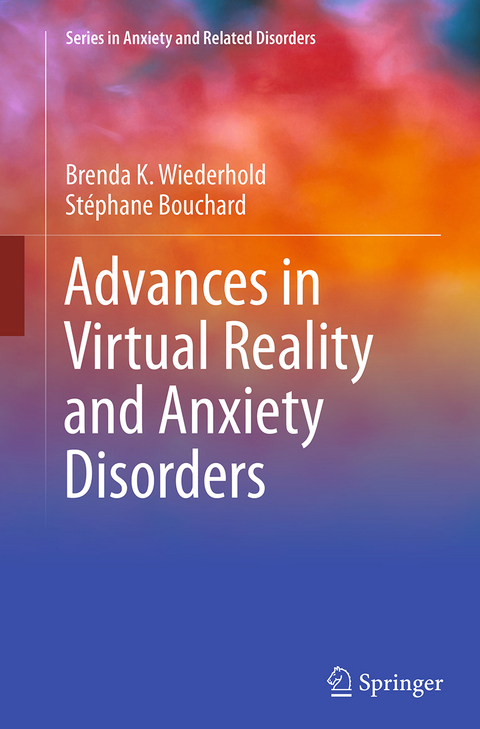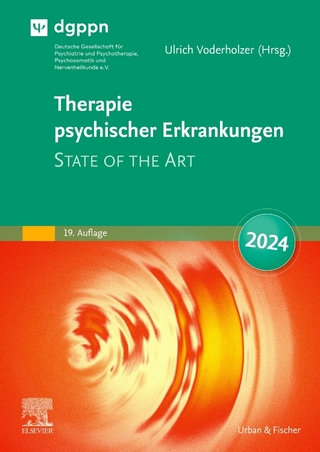
Advances in Virtual Reality and Anxiety Disorders
Springer-Verlag New York Inc.
978-1-4899-7748-9 (ISBN)
The interactive computer-generated world of virtual reality has been successful in treating phobias and other anxiety-related conditions, in part because of its distinct advantages over traditional in vivo exposure. Yet many clinicians still think of VR technology as it was in the 1990s–bulky, costly, technically difficult–with little knowledge of its evolution toward more modern, evidence-based, practice-friendly treatment.
These updates, and their clinical usefulness, are the subject of Advances in Virtual Reality and Anxiety Disorders, a timely guidebook geared toward integrating up-to-date VR methods into everyday practice. Introductory material covers key virtual reality concepts, provides a brief history of VR as used in therapy for anxiety disorders, addresses the concept of presence, and explains the side effects, known as cybersickness, that affect a small percentage of clients. Chapters in the book's main section detail current techniques and review study findings for using VR in the treatment of:
· Claustrophobia.
· Panic disorder, agoraphobia, and driving phobia.
· Acrophobia and aviophobia.
· Arachnophobia.
· Social phobia.
· Generalized anxiety disorder and OCD.
· PTSD.
· Plus clinical guidelines for establishing a VR clinic.
An in-depth framework for effective (and cost-effective) therapeutic innovations for entrenched problems, Advances in Virtual Reality and Anxiety Disorders will find an engaged audience among psychologists, psychiatrists, social workers, and mental health counselors.eractive
Brenda K. Wiederhold is Executive Director of the Virtual Reality Medical Center (VRMC), a professional medical corporation with offices in San Diego and Los Angeles, California and as Chief Executive Officer of the Interactive Media Institute, a non-profit organization dedicated to furthering the application of advanced technologies for patient care. She is also a professor in the Department of Psychiatry at UCSD. Dr. Wiederhold is a licensed clinical psychologist and has a doctorate in Clinical Health Psychology, as well as national certification in both biofeedback and neurofeedback. She serves on the editorial board of Cyber Psychology & Behavior Journal and is recognized as a national and international expert in the treatment of anxiety, panic and phobias with virtual reality exposure and cognitive-behavioral therapy, having completed over 3,000 VR therapy sessions. VRMC offers comprehensive programs to treat fear of flying, driving, public speaking, heights, claustrophobia, panic disorder and agoraphobia, social phobia and eating disorders. Prior to entering the field of psychology, Dr. Wiederhold completed a Masters in Business Administration and has ten years experience as a chief financial officer of a management consulting firm and served in civil service as head of internal audit for the government.
Part I: Introduction.- Presence.- Sickness in Virtual Reality.- Part II: Fear of Flying (Aviophobia): Efficacy and methodological lessons from outcome trials.- Arachnophobia and Fear of Other Insects: Efficacy and lessons learned from treatment process.- Fear of Heights (Acrophobia): Efficacy and lessons learned from psychophysiological data.- Claustrophobia: Efficacy and treatment protocals.- Panic Disorder, Agoraphobia and Driving Phobia: Lessons learned from efficacy studies.- Social Anxiety Disorder: Efficacy and virtual humans.- Virtual Reality for Posttraumatic Stress Disorder.- Generalized Anxiety Disorder and Obsessive-Compulsive Disorder: Efficacy and the Development of Virtual Environments.- Part III: A Case Example of a Virtual Reality Clinic.- Conclusions: The present and future of Virtual Reality in the treatment of Anxiety Disorders.
| Erscheinungsdatum | 11.08.2016 |
|---|---|
| Reihe/Serie | Series in Anxiety and Related Disorders |
| Zusatzinfo | 87 Illustrations, black and white; VII, 287 p. 87 illus. |
| Verlagsort | New York |
| Sprache | englisch |
| Maße | 155 x 235 mm |
| Themenwelt | Geisteswissenschaften ► Psychologie ► Klinische Psychologie |
| Medizin / Pharmazie ► Medizinische Fachgebiete ► Psychiatrie / Psychotherapie | |
| Schlagworte | acrophobia • Agoraphobia • animal phobia • Anxiety Disorders • arachnophobia • aviophobia • claustrophobia • development of a virtual environment • driving phobia • generalized anxiety disorder • immersion in virtual reality • InterReality • Obsessive-compulsive disorder • Panic disorder • Posttraumatic stress disorder • self-focus attention • sensory conflict theory • simulator sickness • Social phobia • Virtual Reality • virtual reality clinic |
| ISBN-10 | 1-4899-7748-1 / 1489977481 |
| ISBN-13 | 978-1-4899-7748-9 / 9781489977489 |
| Zustand | Neuware |
| Haben Sie eine Frage zum Produkt? |
aus dem Bereich


